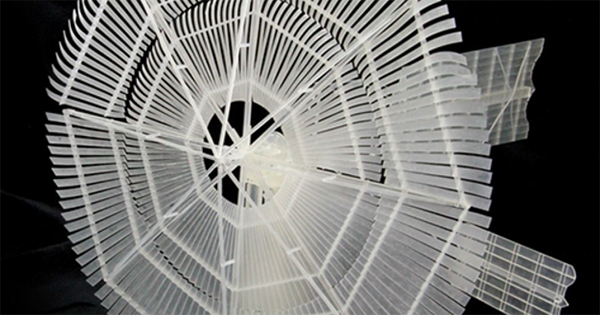HOT
 Production-Quality Lenses Directly from SLA 3D P…
Production-Quality Lenses Directly from SLA 3D P… Forging Ahead with Solar Energy and GibbsCAM CNC…
Forging Ahead with Solar Energy and GibbsCAM CNC… GibbsCAM Software Helps Race-Team Mechanics Beco…
GibbsCAM Software Helps Race-Team Mechanics Beco… Metro Aerospace Introduces 3D Printed Part for F…
Metro Aerospace Introduces 3D Printed Part for F… GibbsCAM Enables Rover Exploration Vehicle Parts…
GibbsCAM Enables Rover Exploration Vehicle Parts… Designing a Custom Boot for an Injured Penguin
Designing a Custom Boot for an Injured Penguin Asano Uses Geomagic 3D Scan Software to Drive In…
Asano Uses Geomagic 3D Scan Software to Drive In…
Historic Windmills Recreated Using 3D Printing
The American Wind Power Center (AWPC) has partnered with WhiteClouds to create scale models of historic windmills using computer aided design and 3D printing. The windmills will be part of a model train display that will be on show in the AWPC Museum. “We plan to build a model train layout of early Lubbock from 1910 to 1950, a time when there were a large number of windmills in this area,” said Coy Harris, Executive Director of the AWPC. “That is also the time when the train came to Lubbock.”
Harris has been working with Kelly Root, a designer at WhiteClouds, to create scale models of the windmills which are then 3D printed in WhiteClouds’ lab on a ProJet 3500 HDMax. “By using 3D design and 3D printing (the AWPC) was able to get a scale model of a windmill that isn’t available anywhere else. This is a windmill that was being used over 30 years ago. Scale models of it simply aren’t available anywhere, it had to be created from scratch.”

The models have been recreated using a variety of techniques. One of the windmills was recreated using a scale model that AWPC already owned. Root was able to take the measurements and then reverse-engineer and design a replica of the model. One of the other windmills was created using old blue prints of the original windmill and photographs. Root commented that the biggest challenge of the project is keeping the models as true to the original full-scale windmills as possible while still keeping the designs 3D printable.
All of the windmill models have been 3D printed using Multi-Jet Modeling technology. This process uses a UV-cured resin to create precise, durable, plastic parts. Each layer is only 16 microns, which is about 1/6 the thickness of a human hair. This gives the scale model windmills incredible detail. The final print is translucent and off-white.
Harris and his team will then assemble and finish the models. “All the windmills will be printed and painted, said Harris. “We will have to build the wooden towers for many. Most of the windmills are too complicated to hand build and that is why they are being printed.”
The AWPC is the largest windmill museum in the world with a collection of over 100 windmills in an indoor gallery and 60 windmills erected outside in the Linebery Windmill Park.




































